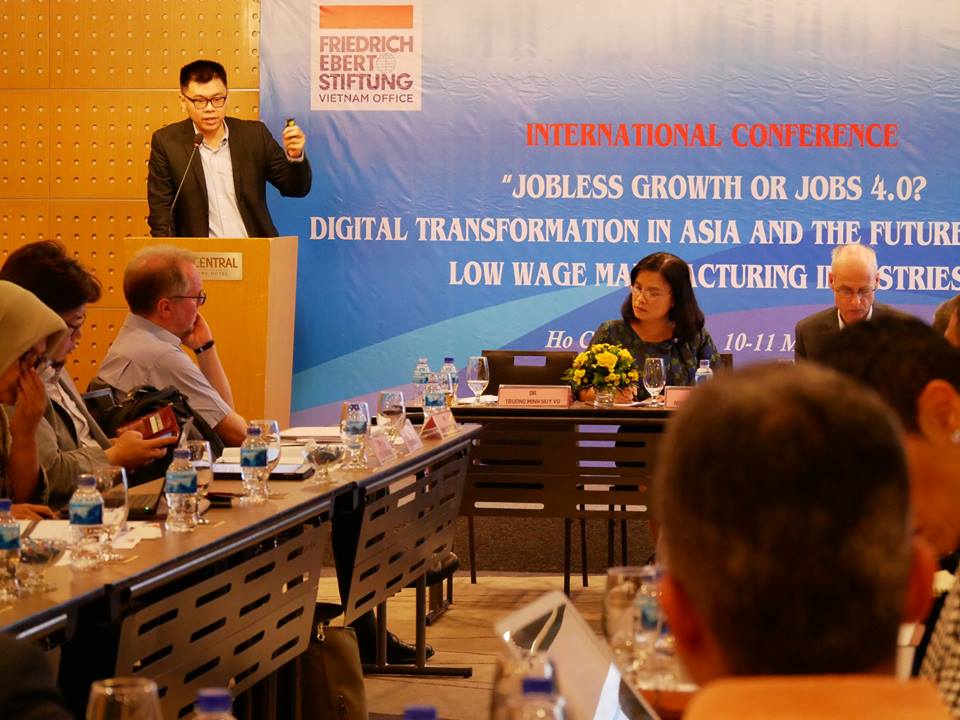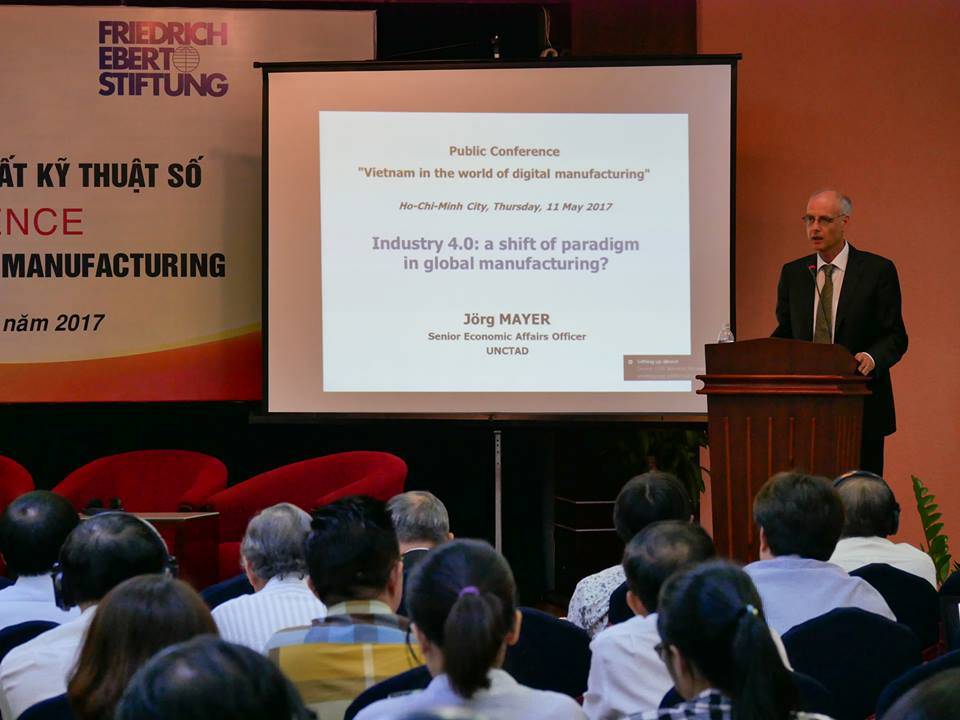Jobless Growth or Jobs 4.0? Digital transformation in Asia and the future of work in low wage manufacturing industries
Dr. Truong Minh Vu, Director, Center for Strategic and International Studies, USSH presenting "The future of work in the textile, clothing, and footwear (TCF) manufacturing sector in the wake of automation-The case of Vietnam". Photo: Tim Tannhof
Mrs. Hendri Saparini, Coordinating Ministry of Economic Affairs, Head of Working Group on Macro Economy, Trade and Investment, Indonesia expressing her opinion in the World Café session. Photo: Tim Tannhof
The labor-cost advantage of developing countries in Asia is challenged by increased use of digital automation and robots. Particularly those countries whose development model depends on export-led, low technology, low wage manufacturing industries may thus face the phenomena of jobless growth or even de-employment in the form of automation or even reshoring of employment to the previous importing countries thus reversing the direction of the current global value chains.
The international conference offered all scholars, researchers and experts from China, Geneva, India, Indonesia, Korea, Malaysia, Philippines, Thailand and Vietnam the opportunity to share ideas and exchange experiences on Industry 4.0 with many aspects such as economic framework, upgrading and transformation , human factor in their respective countries. Dr. Truong-Minh Vu (USSH) had a keynote speech on development in automation and its consequences in Vietnam “Robots are not yet cost-effective in many sectors. By engaging in trade agreements and embracing regional integration, Vietnam can sustain its competitive edge for a certain time. We need to use the time this gives us to redesign our education and training systems, to create the managerial and labor skills needed to operate new technologies and widely disseminate their benefits in the future." In the world café sessions participants discussed digitalization as a new frontier for various sectors, as well as strategies different countries are taking to deal with the changes the next industrial revolution brings about. The discussion also centered on what we can learn from other transformations and what policy measures can help to ensure that everyone benefits from advancing technology and fair competition and standards are maintained.
The conference ended with the high level roundtable discussion on "Vietnam in the World of Digital Manufacturing" with participation of experts from business, the public sector and academia and was live streamed on our Facebook page.





